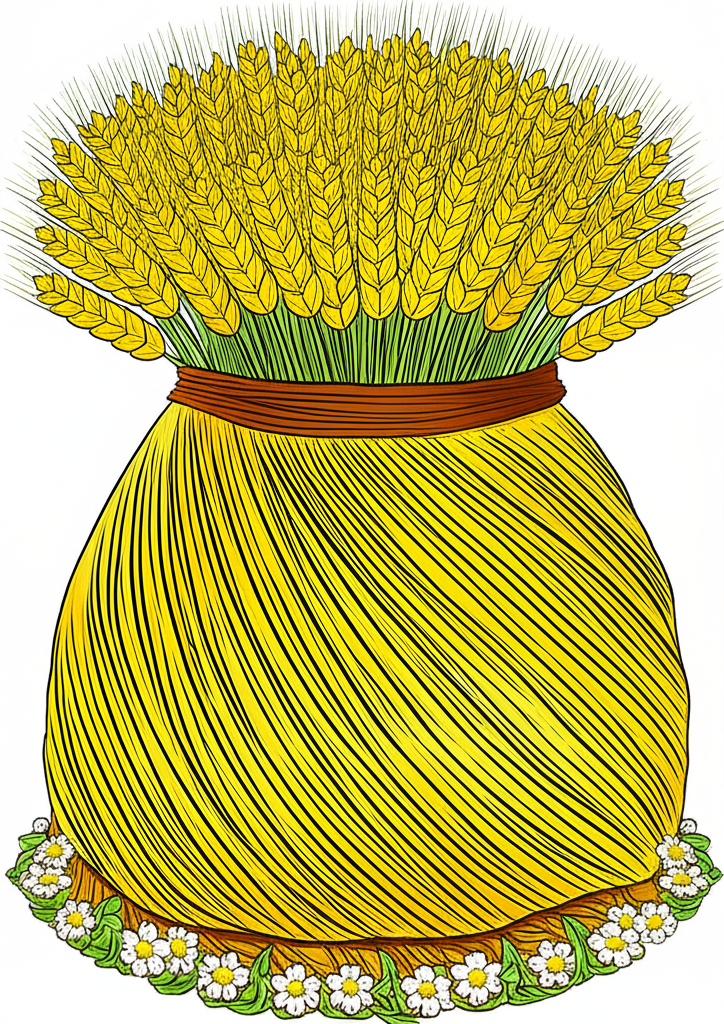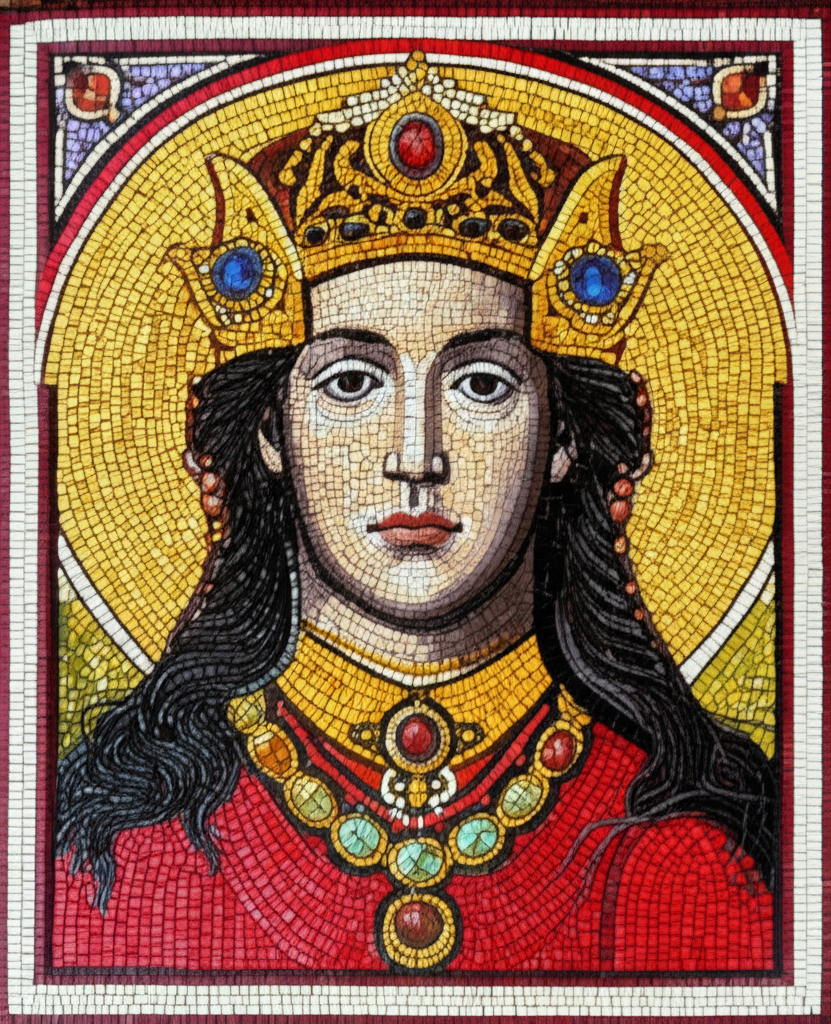Song Of Solomon 7 meaning explained in AI Summary
Chapter 7 of the Song of Solomon continues the theme of love and desire, focusing on the physical beauty of the woman. The man describes her beauty in vivid detail, comparing her to various parts of the human body. He expresses his intense desire for her and his longing to be with her.
The woman responds by praising the man's beauty, comparing him to a king and a hero. She expresses her love for him and her desire to be with him.
Meaning and Commentary
This chapter reinforces the theme of physical beauty and attraction, which is a central element of the Song of Solomon. The vivid imagery used by the man to describe the woman's beauty highlights the power of physical attraction and its role in love.
- The Celebration of Beauty: The chapter celebrates the beauty of the human body, emphasizing the physical aspects of love.
- The Power of Desire: The intense desire and longing expressed by both the man and woman demonstrate the transformative power of physical attraction.
- The Connection Between Physical and Emotional Love: The chapter suggests that physical attraction is an important part of love, but it is not the only element. The emotional and spiritual connection between the man and woman is also emphasized.
Overall, Chapter 7 of the Song of Solomon continues to explore the depth and intensity of the love between the man and woman, emphasizing the physical, emotional, and spiritual connection they share.
Song Of Solomon 7 bible study ai commentary
The love celebrated in Song of Solomon 7 matures into a secure, mutual, and inviting intimacy. It progresses from public admiration of the bride’s beauty by the community, through the groom’s passionate response of personal delight, to the bride’s confident invitation for him to join her in an exclusive, fruitful union. The chapter beautifully portrays a relationship where desire is reciprocal and security in love leads to initiative and a longing to share everything with the beloved. This serves as a profound allegory for the intimate, secure, and fruitful relationship between Christ and His Church.
Song Of Solomon 7 Context
The primary literary feature of this chapter's opening is the wasf, a poetic form common in ancient Near Eastern love poetry that describes the physical attributes of the beloved. Uniquely, this wasf begins from the feet and moves upward, spoken by onlookers (the "daughters of Jerusalem"), highlighting her publically acknowledged beauty and virtue. The setting is one of joyful celebration, possibly a wedding feast or dance. The agricultural and architectural imagery used (vineyards, pomegranates, towers) would have been potent symbols of fertility, strength, and royalty to the original audience.
Song Of Solomon 7:1
"How beautiful are your feet in sandals, O prince's daughter! The curves of your thighs are like jewels, the work of the hands of a skillful workman."
In-depth-analysis
- The Speakers: The address is from the "daughters of Jerusalem" or the community. It's a public affirmation of her beauty, not just private praise from her lover.
- Feet in Sandals: Her feet aren't just beautiful, but "beautiful in sandals," suggesting she is poised for movement, a journey, or a dance. It speaks of a readiness and elegance in her walk/life.
- Prince's Daughter (Heb. bath-nadib): This title denotes nobility, grace, and voluntary willingness. It speaks more to her character and noble spirit than literal royal lineage. She is generous and free in her love.
- Curves of your thighs... skillful workman: The description moves from her feet to her hidden, foundational strength and beauty. Comparing them to the work of a master craftsman elevates her form to a work of divine art, perfectly designed and fashioned.
Bible references
- Isaiah 52:7: "How beautiful upon the mountains are the feet of him who brings good news..." (Beauty of feet linked to purpose and mission).
- Ephesians 6:15: "...as shoes for your feet, having put on the readiness given by the gospel of peace." (Sandals representing readiness and a foundation in peace).
- Psalm 45:13: "The king's daughter is all glorious within; her clothing is interwoven with gold." (Her inner nobility and worth, akin to a "prince's daughter").
Cross references
Eze 16:10-13 (God adorning Jerusalem); Psa 139:14 (fearfully and wonderfully made).
Song Of Solomon 7:2
"Your navel is a rounded goblet that never lacks mixed wine. Your womb is a heap of wheat, encircled with lilies."
In-depth-analysis
- Rounded Goblet... Mixed Wine: This imagery points to life, celebration, and unending sustenance. The navel, central to the body, is a source of continuous joy and blessing. "Mixed wine" was spiced and considered the best.
- Womb is a Heap of Wheat: This is a clear and beautiful metaphor for fertility and abundance. Wheat signifies provision and life.
- Encircled with Lilies: Lilies, a recurring motif in the book, represent purity, beauty, and love. The combination of wheat (fruitfulness) and lilies (purity) portrays a blessed and holy fertility, celebrated within the covenant of marriage.
Bible references
- Psalm 127:3: "Behold, children are a heritage from the LORD, the fruit of the womb a reward." (Echoes the blessing of fruitfulness).
- Proverbs 5:18: "Let your fountain be blessed, and rejoice in the wife of your youth." (Celebration of marital intimacy and its source of life).
- Song of Solomon 2:1-2: "...I am a lily of the valleys... so is my love among the daughters." (Reiteration of the lily as a symbol of the beloved's unique beauty and purity).
Cross references
Pro 3:8 (healing to your navel); Deu 7:13 (God will bless the fruit of your womb); Rth 3:7, 15 (scenes with heaps of grain).
Song Of Solomon 7:3
"Your two breasts are like two fawns, twins of a gazelle."
In-depth-analysis
- This is a direct repetition of the praise given by the groom in Song of Solomon 4:5.
- Significance of Repetition: The community now sees and describes her with the same loving admiration as her husband. It signifies a shared, objective understanding of her beauty and worth.
- Imagery: "Two fawns, twins of a gazelle" emphasizes symmetry, gentleness, vibrant life, and untouched innocence.
Bible references
- Song of Solomon 4:5: "Your two breasts are like two fawns, twins of a gazelle, that graze among the lilies." (The groom's original praise).
- Proverbs 5:19: "...a lovely deer, a graceful doe. Let her breasts fill you at all times with delight..." (Animal imagery used for the cherished wife).
Cross references
Hos 14:5-7 (Israel's fruitful beauty); 1 Pet 3:3-4 (inward and outward beauty).
Song Of Solomon 7:4
"Your neck is like a tower of ivory, your eyes like pools in Heshbon by the gate of Bath-rabbim. Your nose is like a tower of Lebanon, which looks toward Damascus."
In-depth-analysis
- Neck... Tower of Ivory: Combines immense value (ivory) with strength and purity (tower). It suggests a stately, precious, and unbending character.
- Eyes like Pools in Heshbon: Heshbon was a famous city, and its pools would have been clear, deep, and tranquil. Her eyes reflect serenity, purity, and profound depth.
- Nose... Tower of Lebanon... Toward Damascus: The tower of Lebanon was a prominent, strategic watchtower. This unusual simile likely speaks of her discernment, majesty, and strength. Her "nose" (often a Hebrew idiom for countenance or even anger/discernment) is watchful and regal, facing Damascus (a potential threat to Israel), suggesting she possesses spiritual vigilance.
Bible references
- Nehemiah 3:1: "Then Eliashib the high priest rose up with his brothers the priests, and they built the Sheep Gate." (Towers were vital for security and identity).
- Revelation 21:21: "And the twelve gates were twelve pearls... and the street of the city was pure gold, like transparent glass." (Imagery of precious materials used for God's holy city, the bride of Christ).
Cross references
Sg 4:4 (neck like tower of David); 2 Cor 3:18 (reflecting the Lord's glory).
Song Of Solomon 7:5
"Your head crowns you like Carmel, and the hair of your head is like purple; a king is held captive in the tresses."
In-depth-analysis
- Head... like Carmel: Mount Carmel was renowned for its lushness, majesty, and beauty. Her entire bearing is regal and glorious.
- Hair... like Purple: Purple was the color of royalty, immensely expensive and rare. Her hair, her "glory" (1 Cor 11:15), is so regal that it captivates royalty itself.
- A King is held Captive: This is the stunning climax of the community's praise. Her beauty and virtue are not just attractive; they are powerful enough to capture the heart of the most powerful man, the king. Allegorically, the beauty of the Church (in its state of grace and devotion) holds the loving attention of King Jesus.
Bible references
- Isaiah 35:2: "it shall blossom abundantly and rejoice... the glory of Lebanon shall be given to it, the majesty of Carmel and Sharon." (Carmel as a symbol of supreme majesty).
- Psalm 45:11: "and the king will desire your beauty. Since he is your lord, bow to him." (The King's desire for his bride).
Cross references
Jdg 16:19 (Delilah subduing Samson via his hair); Est 1:6 (royal purple); Lk 7:38 (woman washing Jesus' feet with her hair).
Song Of Solomon 7:6
"How beautiful and how pleasant you are, O love, with your delights!"
In-depth-analysis
- Shift in Speaker: The groom (Solomon) now breaks in, unable to contain himself. He moves from the objective "beautiful" (what she is) to the subjective "pleasant" (how she makes him feel).
- O love, with your delights: He sums her up not by her parts, but by her essence: she is love, the embodiment of all delights. This is the highest praise, shifting from physical attributes to the wholeness of her being and the joy she brings.
Bible references
- Ephesians 5:25-27: "...that he might present the church to himself in splendor, without spot or wrinkle... that she might be holy and without blemish." (Christ's ultimate goal for His bride is her glorious and delightful state).
- Zephaniah 3:17: "The LORD your God is in your midst... he will rejoice over you with gladness; he will quiet you by his love; he will exult over you with loud singing." (God's personal, emotional delight in His people).
Cross references
Psa 16:11 (fullness of joy in God's presence); Sg 1:15-16 (mutual praise).
Song Of Solomon 7:7-8
"This your stature is like a palm tree, and your breasts are like its clusters. I say, “I will climb the palm tree; I will take hold of its fruit.” Oh, may your breasts be like clusters of the vine, your breath like the fragrance of apples,"
In-depth-analysis
- Stature like a Palm Tree: The palm tree symbolizes righteousness, victory, stateliness, and fruitfulness. It stands tall and graceful.
- I will climb... take hold: This is an explicit expression of his desire for intimate union. Having admired her from afar, he now resolves to experience her love fully. The language is passionate and possessive in a covenantal, loving way.
- Breasts like... clusters of the vine: The imagery shifts from palm fruit to grape clusters, emphasizing rich sweetness, abundance, and the intoxicating joy of her love.
- Breath like Apples: Her very breath, the sign of her life, is sweet and invigorating to him, suggesting wholesome and life-giving words and kisses.
Bible references
- Psalm 92:12: "The righteous flourish like the palm tree and grow like a cedar in Lebanon." (Palm tree as a metaphor for the righteous).
- John 15:5: "I am the vine; you are the branches. Whoever abides in me and I in him, he it is that bears much fruit..." (Christ as the vine, believers as fruit-bearing branches, echoing the themes of intimacy and fruitfulness).
Cross references
Rev 7:9 (multitude with palm branches); Sg 2:3 (under his shadow I sit with delight, fruit sweet to my taste); Gen 2:7 (breath of life).
Song Of Solomon 7:9
"and your mouth like the best wine." "It goes down smoothly for my beloved, gliding over lips and teeth."
In-depth-analysis
- Split Verse: The first part ("and your mouth...") is the groom concluding his praise. The second part ("It goes down...") is the bride's interjection and completion of his thought.
- Mouth like the Best Wine: Her speech, her kisses, her very being are intoxicatingly wonderful.
- Gliding over Lips and Teeth: (Hebrew is difficult, also translated "lips of sleepers"). It suggests a deeply satisfying love that is smooth and pleasant. Allegorically, the pure doctrine/praise from the Church ("best wine") brings life and refreshment, even capable of "awakening sleepers" to spiritual life.
Bible references
- Proverbs 16:24: "Gracious words are like a honeycomb, sweetness to the soul and health to the body." (The quality of her words and being).
- Acts 2:13-15: "But others mocking said, 'They are filled with new wine.'" (The Spirit's outpouring compared to intoxicating new wine).
Cross references
Psa 119:103 (God's word sweeter than honey); Jn 2:10 (Jesus provides the best wine).
Song Of Solomon 7:10
"I am my beloved's, and his desire is for me."
In-depth-analysis
- The Climax of Relational Security: This is a progression from her earlier statements.
- Sg 2:16: "My beloved is mine, and I am his." (Mutual possession)
- Sg 6:3: "I am my beloved's, and my beloved is mine." (She belongs to him first)
- Sg 7:10: "I am my beloved's, and his desire is for me." (The focus shifts entirely to his desire for her). She finds her ultimate security and identity not just in belonging to him, but in being the object of his unwavering desire.
- Reversal of the Curse: This statement is a direct and powerful reversal of the curse on woman in Genesis 3:16, "...your desire shall be contrary to your husband, but he shall rule over you." In this redeemed relationship, she is not striving for him; she rests securely in the fact that his desire is set upon her.
Bible references
- Genesis 3:16: "...Your desire shall be contrary to your husband, but he shall rule over you." (The Edenic curse that is reversed here in the context of redeemed love).
- Galatians 2:20: "...the Son of God, who loved me and gave himself for me." (The foundation of a believer's security is Christ's love and desire for them).
Cross references
Eph 5:25 (Christ loved the church); Isa 62:4-5 (As a bridegroom rejoices over the bride, so shall your God rejoice over you).
Song Of Solomon 7:11-12
"Come, my beloved, let us go out into the fields and lodge in the villages; let us go out early to the vineyards and see whether the vine has budded, whether the grape blossoms have opened and the pomegranates are in bloom. There I will give you my love."
In-depth-analysis
- The Bride's Initiative: Secure in his desire for her (v. 10), she now takes the initiative. This is not forwardness, but a confident and free invitation born of security.
- Invitation to the Country: She invites him away from the pomp of the court ("the city") to the natural, private world of the fields and vineyards. This is a call to a rustic, simple, and personal intimacy.
- Inspecting the Fruit: "Let us see whether the vine has budded..." This is a call for them to jointly inspect the fruitfulness of their love. Allegorically, the Church invites Christ to come into her spheres of influence (the "fields" of mission) and see the fruit being borne for His glory.
- There I will give you my love: She promises to give him her love freely and fully in this private, fruitful setting.
Bible references
- John 15:16: "You did not choose me, but I chose you and appointed you that you should go and bear fruit and that your fruit should abide..." (The theme of bearing fruit is central to the Christian life).
- Revelation 22:17: "The Spirit and the bride say, 'Come.'..." (The Church's ultimate invitation for Christ to return and commune with His people).
Cross references
Gen 24:63 (Isaac went out to meditate in the field); Sg 6:11 (I went down to the nut orchard to look).
Song Of Solomon 7:13
"The mandrakes give forth fragrance, and besides our doors are all choice fruits, new and old, which I have laid up for you, O my beloved."
In-depth-analysis
- Mandrakes (Heb. dudaim): These "love apples" were associated with love, fertility, and were considered an aphrodisiac in the ancient world. Their fragrance signals a time of love.
- Choice Fruits, New and Old: She has prepared everything for him. The fruits represent all the blessings, experiences, and acts of love in their relationship. "New and old" signifies both the cherished memories of the past and fresh expressions of love in the present. She has reserved all of her love and its fruits exclusively for him.
- I have laid up for you: This is an act of devotion. She has been cultivating and storing up treasures of love specifically for him, highlighting her singular focus and dedication.
Bible references
- Genesis 30:14-16: "In the days of wheat harvest Reuben went and found mandrakes in the field and brought them to his mother Leah..." (The only other significant mention of mandrakes, linked to fertility and marital relations).
- Matthew 13:52: "Therefore every scribe who has been trained for the kingdom of heaven is like a master of a house, who brings out of his treasure what is new and what is old." (Bringing forth treasures new and old for the Lord).
Cross references
Gal 5:22-23 (fruit of the spirit); Rev 22:2 (tree of life bearing twelve kinds of fruit).
Song Of Solomon Chapter 7 Analysis
- Reversal of the Genesis 3:16 Curse: The chapter's theological pinnacle is verse 10 ("his desire is for me"), which serves as a powerful biblical illustration of redemption in relationship. The struggle and painful striving dictated by the curse is replaced by peaceful security in the husband's (Christ's) unwavering desire for his bride (the Church).
- Progression of Intimacy: The chapter demonstrates a mature relational arc: 1) Public affirmation from others. 2) The husband's passionate and personal praise. 3) The wife's secure response, leading to 4) Her confident initiative in inviting him to deeper, exclusive intimacy.
- The Dance of Mahanaim (from v.1): This phrase, meaning "two camps," likely refers to Jacob's vision in Genesis 32:2. As a dance, it could symbolize the beautiful interplay between two becoming one. In a Christ-Church allegory, it can represent:
- The joining of Christ (heavenly camp) and the Church (earthly camp).
- The dynamic "struggle" and triumph of love.
- The militant, victorious nature of the Church (a "dance of triumph").
- Fruitfulness as the Goal of Love: The entire final section (vv. 11-13) frames intimacy within the context of fruitfulness. The lovers go to the vineyards to inspect the fruit, paralleling the New Testament call for believers to "bear fruit" in their relationship with Christ (John 15).
Song Of Solomon 7 Summary
This chapter details a mature and secure love. It begins with the community admiring the bride's beauty and noble character in a toe-to-head wasf. Overwhelmed, the groom affirms this praise, adding his own passionate desire for intimacy. Resting securely in his desire, the bride takes the initiative, inviting him away to the countryside to inspect the fruits of their love and to give herself to him completely, presenting all her "choice fruits, new and old" that she has reserved only for him.
Song Of Solomon 7 AI Image Audio and Video









Song Of Solomon chapter 7 kjv
- 1 How beautiful are thy feet with shoes, O prince's daughter! the joints of thy thighs are like jewels, the work of the hands of a cunning workman.
- 2 Thy navel is like a round goblet, which wanteth not liquor: thy belly is like an heap of wheat set about with lilies.
- 3 Thy two breasts are like two young roes that are twins.
- 4 Thy neck is as a tower of ivory; thine eyes like the fishpools in Heshbon, by the gate of Bathrabbim: thy nose is as the tower of Lebanon which looketh toward Damascus.
- 5 Thine head upon thee is like Carmel, and the hair of thine head like purple; the king is held in the galleries.
- 6 How fair and how pleasant art thou, O love, for delights!
- 7 This thy stature is like to a palm tree, and thy breasts to clusters of grapes.
- 8 I said, I will go up to the palm tree, I will take hold of the boughs thereof: now also thy breasts shall be as clusters of the vine, and the smell of thy nose like apples;
- 9 And the roof of thy mouth like the best wine for my beloved, that goeth down sweetly, causing the lips of those that are asleep to speak.
- 10 I am my beloved's, and his desire is toward me.
- 11 Come, my beloved, let us go forth into the field; let us lodge in the villages.
- 12 Let us get up early to the vineyards; let us see if the vine flourish, whether the tender grape appear, and the pomegranates bud forth: there will I give thee my loves.
- 13 The mandrakes give a smell, and at our gates are all manner of pleasant fruits, new and old, which I have laid up for thee, O my beloved.
Song Of Solomon chapter 7 nkjv
- 1 How beautiful are your feet in sandals, O prince's daughter! The curves of your thighs are like jewels, The work of the hands of a skillful workman.
- 2 Your navel is a rounded goblet; It lacks no blended beverage. Your waist is a heap of wheat Set about with lilies.
- 3 Your two breasts are like two fawns, Twins of a gazelle.
- 4 Your neck is like an ivory tower, Your eyes like the pools in Heshbon By the gate of Bath Rabbim. Your nose is like the tower of Lebanon Which looks toward Damascus.
- 5 Your head crowns you like Mount Carmel, And the hair of your head is like purple; A king is held captive by your tresses.
- 6 How fair and how pleasant you are, O love, with your delights!
- 7 This stature of yours is like a palm tree, And your breasts like its clusters.
- 8 I said, "I will go up to the palm tree, I will take hold of its branches." Let now your breasts be like clusters of the vine, The fragrance of your breath like apples,
- 9 And the roof of your mouth like the best wine. The wine goes down smoothly for my beloved, Moving gently the lips of sleepers.
- 10 I am my beloved's, And his desire is toward me.
- 11 Come, my beloved, Let us go forth to the field; Let us lodge in the villages.
- 12 Let us get up early to the vineyards; Let us see if the vine has budded, Whether the grape blossoms are open, And the pomegranates are in bloom. There I will give you my love.
- 13 The mandrakes give off a fragrance, And at our gates are pleasant fruits, All manner, new and old, Which I have laid up for you, my beloved.
Song Of Solomon chapter 7 niv
- 1 How beautiful your sandaled feet, O prince's daughter! Your graceful legs are like jewels, the work of an artist's hands.
- 2 Your navel is a rounded goblet that never lacks blended wine. Your waist is a mound of wheat encircled by lilies.
- 3 Your breasts are like two fawns, like twin fawns of a gazelle.
- 4 Your neck is like an ivory tower. Your eyes are the pools of Heshbon by the gate of Bath Rabbim. Your nose is like the tower of Lebanon looking toward Damascus.
- 5 Your head crowns you like Mount Carmel. Your hair is like royal tapestry; the king is held captive by its tresses.
- 6 How beautiful you are and how pleasing, my love, with your delights!
- 7 Your stature is like that of the palm, and your breasts like clusters of fruit.
- 8 I said, "I will climb the palm tree; I will take hold of its fruit." May your breasts be like clusters of grapes on the vine, the fragrance of your breath like apples,
- 9 and your mouth like the best wine. May the wine go straight to my beloved, flowing gently over lips and teeth.
- 10 I belong to my beloved, and his desire is for me.
- 11 Come, my beloved, let us go to the countryside, let us spend the night in the villages.
- 12 Let us go early to the vineyards to see if the vines have budded, if their blossoms have opened, and if the pomegranates are in bloom? there I will give you my love.
- 13 The mandrakes send out their fragrance, and at our door is every delicacy, both new and old, that I have stored up for you, my beloved.
Song Of Solomon chapter 7 esv
- 1 How beautiful are your feet in sandals, O noble daughter! Your rounded thighs are like jewels, the work of a master hand.
- 2 Your navel is a rounded bowl that never lacks mixed wine. Your belly is a heap of wheat, encircled with lilies.
- 3 Your two breasts are like two fawns, twins of a gazelle.
- 4 Your neck is like an ivory tower. Your eyes are pools in Heshbon, by the gate of Bath-rabbim. Your nose is like a tower of Lebanon, which looks toward Damascus.
- 5 Your head crowns you like Carmel, and your flowing locks are like purple; a king is held captive in the tresses.
- 6 How beautiful and pleasant you are, O loved one, with all your delights!
- 7 Your stature is like a palm tree, and your breasts are like its clusters.
- 8 I say I will climb the palm tree and lay hold of its fruit. Oh may your breasts be like clusters of the vine, and the scent of your breath like apples,
- 9 and your mouth like the best wine. She It goes down smoothly for my beloved, gliding over lips and teeth.
- 10 I am my beloved's, and his desire is for me.
- 11 Come, my beloved, let us go out into the fields and lodge in the villages;
- 12 let us go out early to the vineyards and see whether the vines have budded, whether the grape blossoms have opened and the pomegranates are in bloom. There I will give you my love.
- 13 The mandrakes give forth fragrance, and beside our doors are all choice fruits, new as well as old, which I have laid up for you, O my beloved.
Song Of Solomon chapter 7 nlt
- 1 How beautiful are your sandaled feet,
O queenly maiden.
Your rounded thighs are like jewels,
the work of a skilled craftsman. - 2 Your navel is perfectly formed
like a goblet filled with mixed wine.
Between your thighs lies a mound of wheat
bordered with lilies. - 3 Your breasts are like two fawns,
twin fawns of a gazelle. - 4 Your neck is as beautiful as an ivory tower.
Your eyes are like the sparkling pools in Heshbon
by the gate of Bath-rabbim.
Your nose is as fine as the tower of Lebanon
overlooking Damascus. - 5 Your head is as majestic as Mount Carmel,
and the sheen of your hair radiates royalty.
The king is held captive by its tresses. - 6 Oh, how beautiful you are!
How pleasing, my love, how full of delights! - 7 You are slender like a palm tree,
and your breasts are like its clusters of fruit. - 8 I said, "I will climb the palm tree
and take hold of its fruit."
May your breasts be like grape clusters,
and the fragrance of your breath like apples. - 9 May your kisses be as exciting as the best wine ? Young Woman
Yes, wine that goes down smoothly for my lover,
flowing gently over lips and teeth. - 10 I am my lover's,
and he claims me as his own. - 11 Come, my love, let us go out to the fields
and spend the night among the wildflowers. - 12 Let us get up early and go to the vineyards
to see if the grapevines have budded,
if the blossoms have opened,
and if the pomegranates have bloomed.
There I will give you my love. - 13 There the mandrakes give off their fragrance,
and the finest fruits are at our door,
new delights as well as old,
which I have saved for you, my lover.
- Bible Book of Song Of Solomon
- 1 The Bride Confesses Her Love
- 2 The Bride Adores Her Beloved
- 3 The Bride's Dream
- 4 Solomon Admires His Bride's Beauty
- 5 The Bride Searches for Her Beloved
- 6 Together in the Garden of Love
- 7 The Bride Gives Her Love
- 8 Longing for Her Beloved